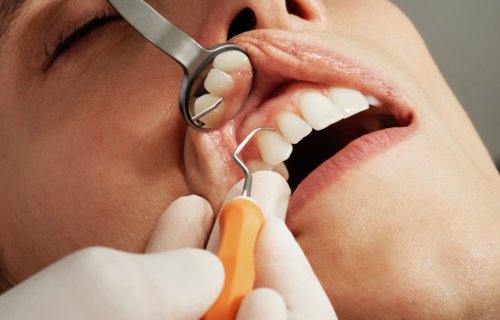STOCKHOLM, Sweden — Add gum disease to the growing list of factors that increase your risk of heart disease, according to recent findings. The association between gum disease and heart disease was stronger if the gum disease was severe.
“Our study suggests that dental screening programmes including regular check-ups and education on proper dental hygiene may help to prevent first and subsequent heart events.” said Dr. Giulia Ferrannini of the Karolinska Institute in Stockholm, Sweden and study author in a statement..
Ferrannini and colleagues looked at dental records of 1,587 participants who had a dental exam between 2010 and 2014. The average participant age was 62. About 985 participants had no dental issues, 489 had moderate gum disease, and 113 had a severe case of gum disease. A follow-up with participants until the end of 2018 investigated any continued presence of gum disease, any new heart problems, or record of death.
The average follow-up was 6.2 years with researchers finding 205 deaths, non-fatal heart attack, stroke, or severe heart failure. People with gum disease were 49% more likely to experience heart problems than people with healthy gums. The more severe the gum disease, the greater the risk of cardiovascular events.
Having a past heart attack also increased the association between gum disease and heart disease.
“We postulate that the damage of periodontal tissues in people with gum disease may facilitate the transfer of germs into the bloodstream. This could accelerate harmful changes to the blood vessels and/or enhance systemic inflammation that is harmful to the vessels,” adds Dr. Ferrannini. “It is important to underline that the quality of care in Sweden is high, as confirmed by the overall low number of total events during follow-up. Despite this, gum disease was linked with an elevated likelihood of cardiovascular disease or death.”
The results were presented at the European Society of Cardiology Congress 2021meeting. The abstract is available to read in the European Heart Journal.
